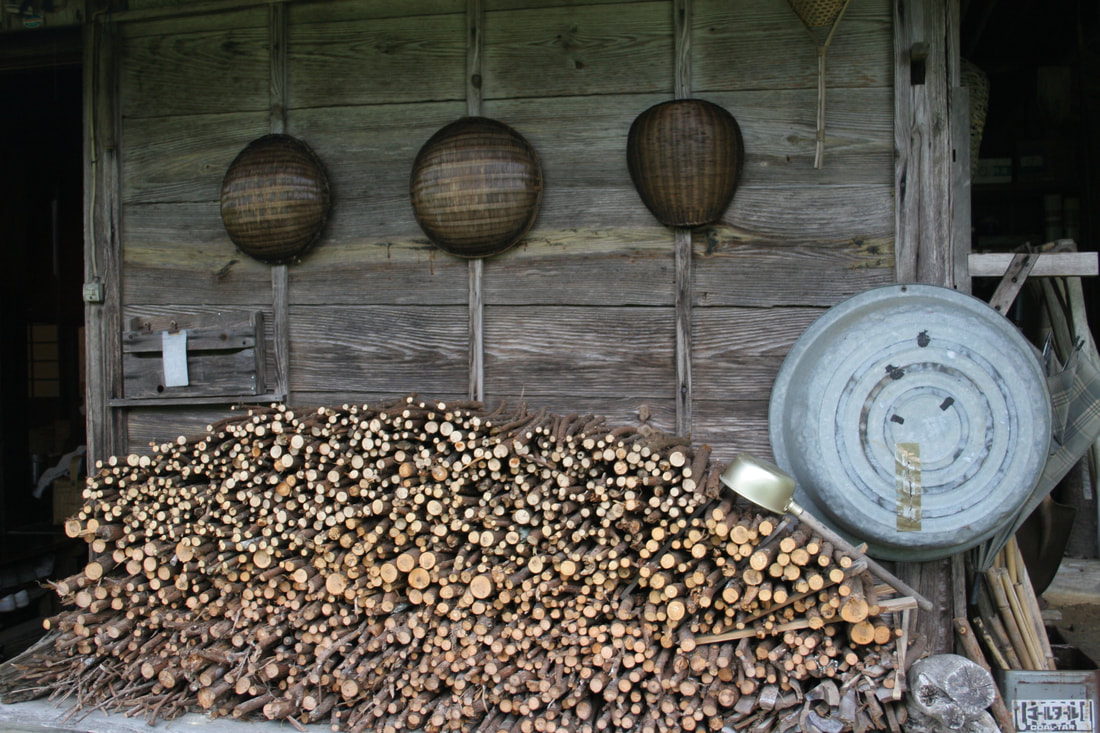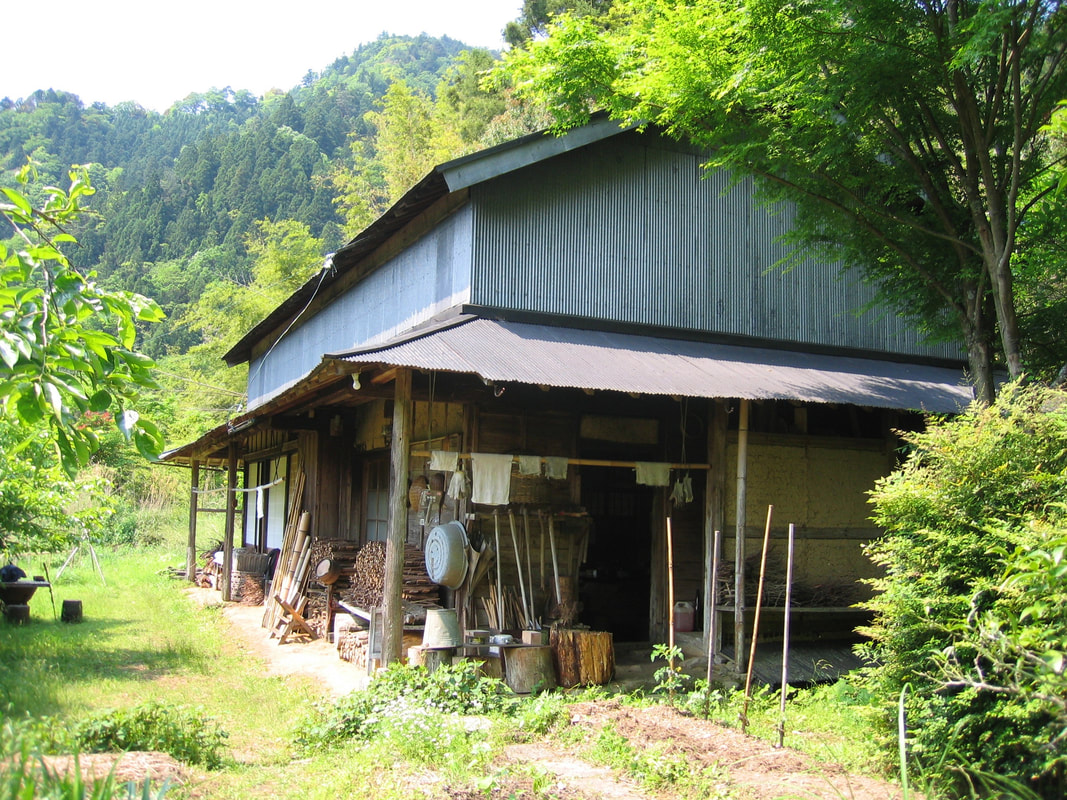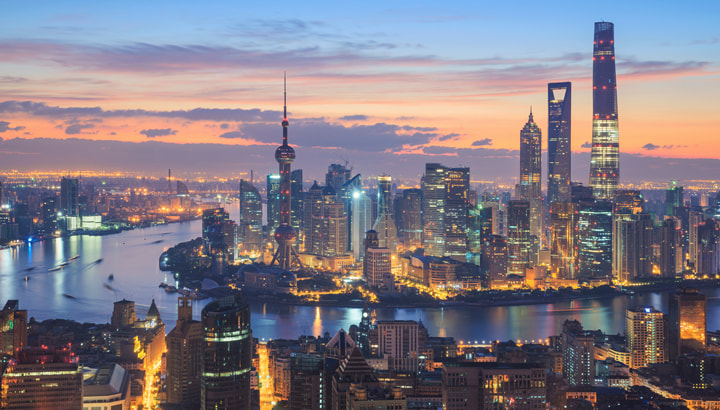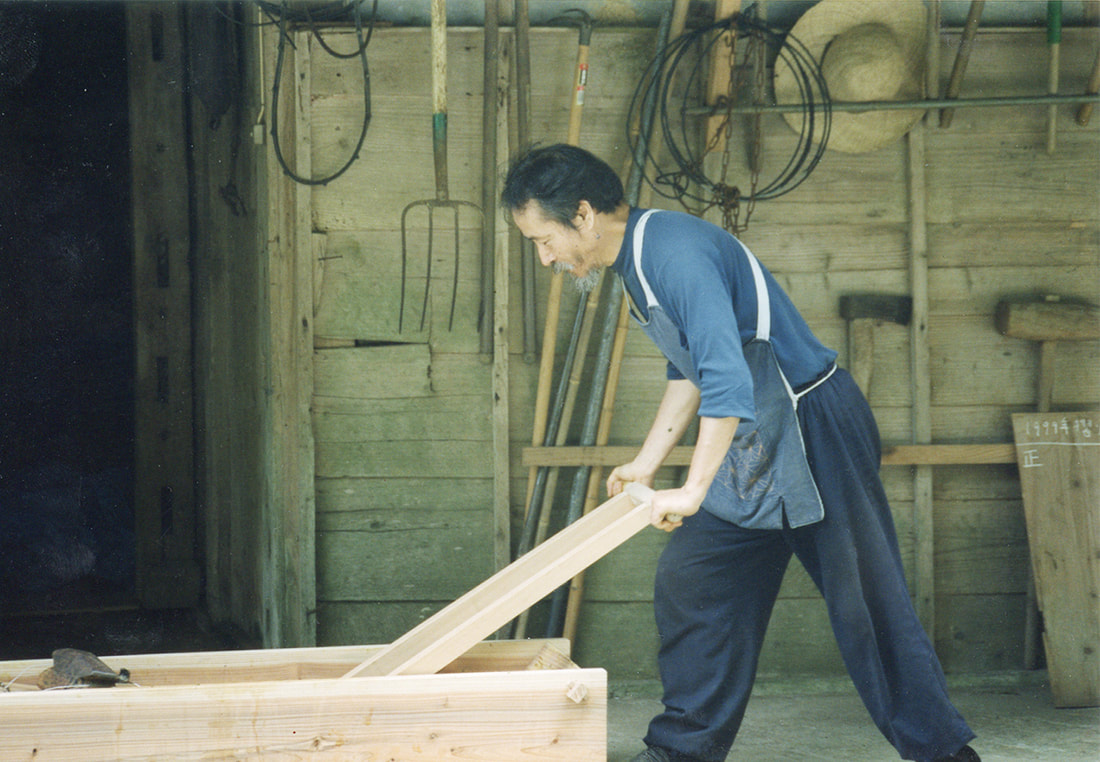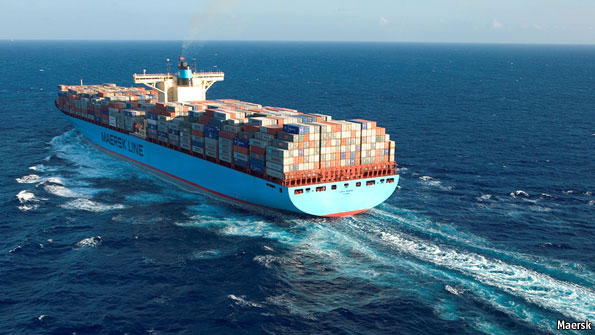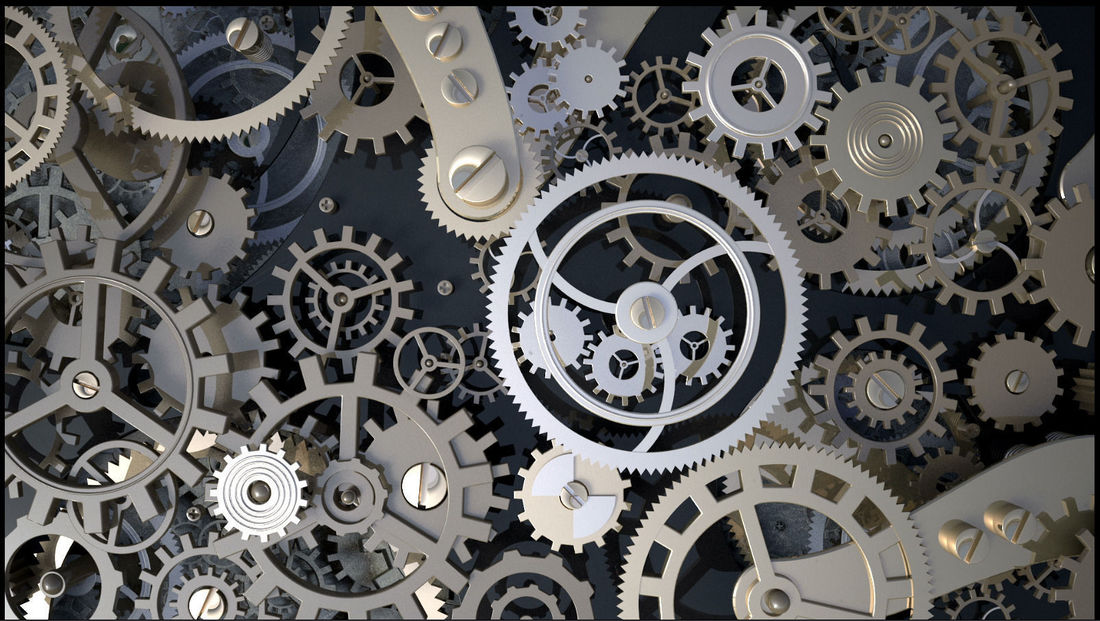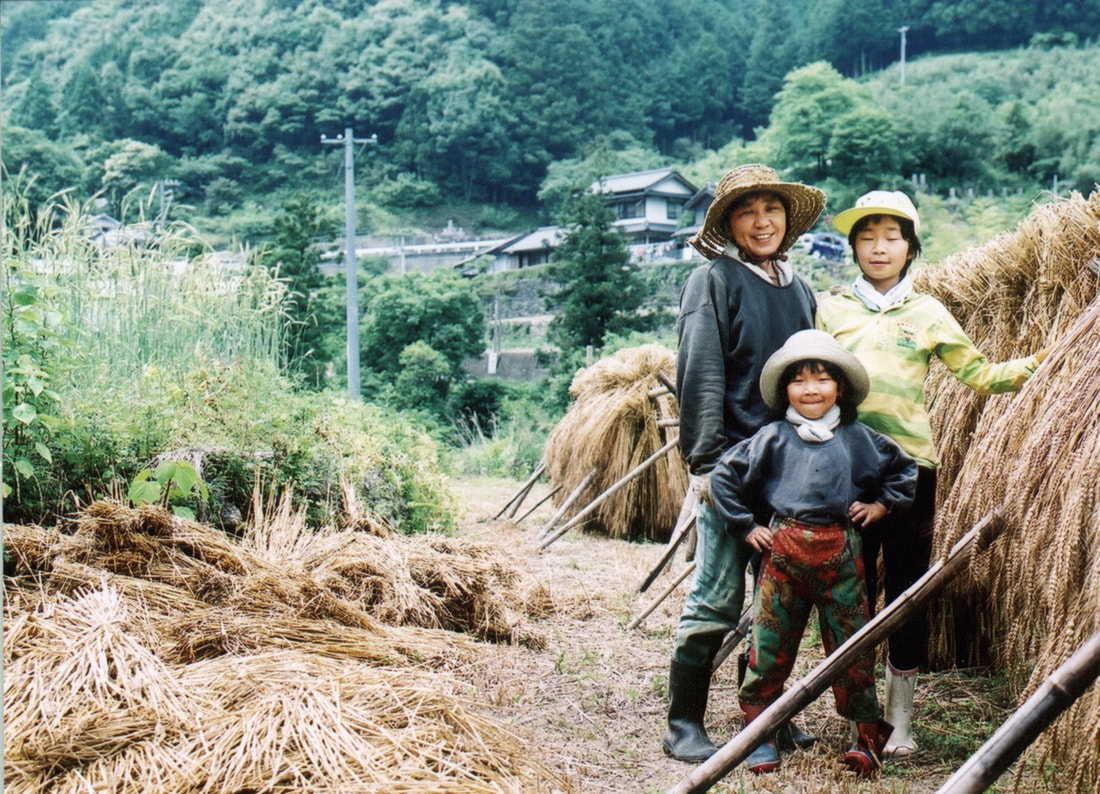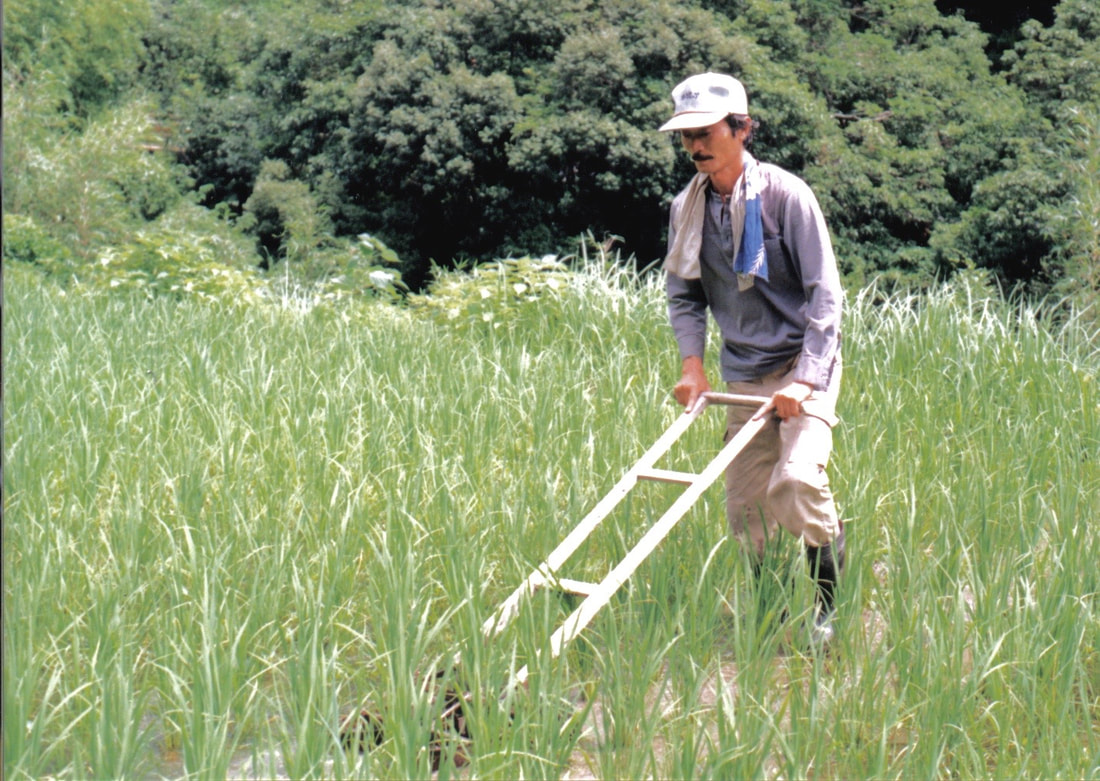| the_abundance_of_less_mingong.pdf |
Couturier’s book is one of the top sustainability reads of this decade, en par with if not more important than E.F. Schumacher’s Small is Beautiful. It does not remain to be postindustrial theory, but shows with real life examples how we can deal with the scarecrows of economic recession, unemployment and lack of intrinsic motivation.
Leading environmentalist Bill McKibben, who wrote the foreword to the new edition of Schumacher’s classic, says about The Abundance of Less: We are in an overheated world--physically and spiritually. It is extremely powerful to read of people who have managed to escape that world, not by traveling to outer space but by heading toward reality. This is subversive in the best possible way.
Will we continue to concentrate on consumption driven urban agglomerations or will rural and decentralized self-sufficiency turn out to be a genuine alternative? Couturier suggests: We need to take a pause, a significant pause, to create a strategy and plan for the change to a slower, richer life. When we are maxed out, we slide into the way the system is already structured, the easiest way to do things.
China has turned within the last four decades into the single largest economy in terms of purchasing power, shaping the modern world like nothing ever before. It is not only the largest greenhouse gas emitter since 2007, but its growing class of affluent urban consumers exceeds already the total population of the US. The Chinese economy has been accelerating the exploitation of natural resources and the environmental degradation at an alarming rate.
Heavy air pollution with smog carpeting the vast area between Beijing, Shanghai and Wuhan caused the former China State Television journalist Chai Jing to produce the documentary Under the Dome. China Water Risk reports that 57% of shallow ground water and 50% of deep ground water are severely polluted and not suitable for human contact let alone drinking. China’s soil pollution receives least attention, but is the most serious cause for concern.
So much discussion about “becoming more green” seems to promise us that if we only make lifestyle tweaks, drive more efficient cars and install more and better solar panels, we can feel good about ourselves, keep our cushiness, and call it “sustainability.” But in the back of our minds, I think we know those tiny adaptations are not going to make the difference that we need. […] I think (the nuclear crisis in) Fukushima has given us an opportunity to deeply consider whether the changes we need to make are simply reorienting consumerism, or more fundamental, like asking “What kind of world do I want to be living in, and what kind of life do I want to have for my children?” [Andy Couturier]
Scientists tell us that this course is one of environmental and ultimately self-destruction, and many agree that we have about 20 years left to change direction before we reach a tipping point of no return; a point when climate change causes sea levels to rise, precipitation cycles to quicken, precipitation volumes and storm frequency to drastically increase.
ALICE BOWS-LARKIN VIDEO
We have been brainwashed for generations by Keynes and his disciples that economic growth is the only formula to wealth and well-being. We have adapted all our institutions and corporations to the dogma that size matters, and we have overheard the gospel of post-industrial economists like E.F. Schumacher who said already in the early 1970s that small is beautiful and that we need to value the irreplaceable capital which man has not made, but simply found, i.e. the earth’s natural resources.[ii]
Postindustrial thinking has produced the ideas of a resource based or circular economy, i.e. an alternative to an industrial, linear and ultimately destructive system of production. Yet, this body of thought has not managed to resolve the recession stigma, which by sheer terminology implies less than before.[iii]
ELLEN MCARTHUR VIDEO
While most of the Western world is in the grip of fear of losing its material wealth, the industrial revolution and globalization have spread Western models of growth like an epidemic: breakneck urbanization, heavy capital investments, mass production, centralized development planning and advanced technology are elements of economic policy which all developing nations apply; in recent years camouflaged as a global rat race amongst knowledge economies.[iv]
It is above all India and China, the globe’s most populous nations, each of them inhabited by about three times more people than the EU and five times more than the US, which bring new urgency to a need for economic transformation. But it is exactly these two continent-like and relatively young nation states which are driven by the humiliation through the European scientific revolution to design their economic systems despite their avert dissatisfaction with Western hegemony in the same model.
In particular China has embarked on an unprecedented modernization trajectory. Urbanization rates have surpassed 50% in 2013 and all social structures including the labor markets are on a fast forward reorganization which is only comparable to what started in Europe during the second industrial revolution at the beginning of the 20th century, i.e. when electricity swept over businesses like a thunderstorm leaving no brick on another.
If each national economic system were a giant clockwork and each one of us a tiny cogwheel in that machine, it would be impossible to reduce revolution let alone change direction. We are all part of larger social transformations, which demand to a certain degree being part of urbanized consumer societies. How can we regain our own momentum and build up torque?
A recession in national economies and the global industrial economy does not necessarily mean that humanity ends up in poverty. A recession in the industrial economy needs to be understood as a reduction of material wealth and profit to a minimum necessity. A reduction in material affluence must be embraced as the only possibility for a wealth in general well-being, that includes all of humanity and the Earth as a living ecosystem.
The German philosopher David Reinhard Precht tells us that the focus of modern societies on material wealth blocks spiritual well-being. It is in particular the exponential modernization of Chinese public transportation, which exemplifies how technocratic capitalism can accelerate a society's material progress. Many notice though that a progress in hardware must be balanced with an upgraded software. High tech infrastructure must be matched with a corresponding, moral (or if you prefer spiritual) value system. China gains rapidly ground in the first, but an increasing number of people feel emptiness in the latter.[i]
TECHINSIDER VIDEO
As this spiritual void opens up ever wider, president Xi Jinping has launched in 2013 the socialist core value campaign, which tries to revive traditional Chinese religions, in particular Confucianism, Taoism and Buddhism, as a counter measure. Ian Johnson writes in his book The Souls of China, that religion provides a morality and frames of reference for universal aspirations—like justice, fairness, and decency—that are higher than any government’s agenda. Out of this is coming a China that is more than the hyper-mercantilist, fragile superpower that we know. It is a country engaging in a global conversation that affects all of us: how to restore solidarity and values to societies that have made economics the basis of most decisions. Perhaps because Chinese traditions were so savagely attacked over the past decades, and then replaced with such a naked form of capitalism, China might actually be at the forefront of this worldwide search for values.[ii]
A campaign which focuses on the resurrection of an ancient value system without changing the overlying economic system makes it almost impossible to truly harvest the promised changes: individual lives continue to be subjected to socialist capitalism and thus consumerism; they remain tiny sprockets in a giant clockwork which drives the largest economic flywheel humanity has ever seen.
Alternative models of lifestyle are therefore fervently sought after and have generated in China during the last decade a self-help market in similar size to the US, but like the government ordained renewal of traditional Chinese values, all these teachings remain to be subject to a linear industrial economy. Aeon Magazine recently published a beautiful video about a few Chinese millennials who have chosen a different path of seeking satisfaction beyond money in the simplicity of rural China. The Abundance of Less can help us understand their underlying motivations.
AEON VIDEO
Japan, the Asian country which for centuries copied China’s culture and commerce, was the most fervent disciple of Western modernization, emulating British industry, the German legal system and French bureaucratic centralization. Although it started during the Meiji Restoration more than a century after Western Europe with its own industrial revolution, it overtook the West latest in the 1990s, when its national financial crisis preceded the GFC by more than a decade.
It is against this backdrop of breakneck social transformation, the abandonment of its own culture and an urbanization rate exceeding 90% that Couturier found a few Japanese individuals who have decided to wrest authority over their lives away from a global market and a national government back into their own hands.
They live in the countryside, grow their own food and pursue what they are really interested in, whether it may be writing, playing music or working as artisans. Their lives are simple and one would say deprived of material affluence. But, by the emerging consensus on truly sustainable living, they are pioneers, showing the rest of us how to be truly rich in social capital and abundant in creativity.
They are in some sense models that we can follow, to leave behind the clockwork of our industrial economies, and Couturier’s profiles of them give us concrete steps on how we can do that. He gives these philosophers who put their thinking into action a platform to teach an important lecture humanity should collectively listen; and we will provide a platform to engage with and learn from him directly.
What is the good life? To many it’s a code word for high-end design, gourmet food, and a red convertible. And so on. To others it’s narrowly defined as total rural food self-sufficiency. For Cynthia and me, it’s an everyday negotiation with the world as it is, a negotiation that must include a continual returning to our values, and a reexamination of whether we are holding to them as strongly as we are able to. It’s also about how we relate to others, both in our daily life but also to others in faraway parts of the planet who suffer from the waste churned out by the affluence of the industrialized world.
Further Reading:
Book website: http://www.theabundanceofless.com/
Facebook: https://www.facebook.com/TheAbundanceOfLess/
Andy's writing school: http://theopening.org
Andy's second book: http://amzn.com/1569754764
TAOL Book Reviews:
Spirituality and Health Magazine
https://spiritualityhealth.com/
